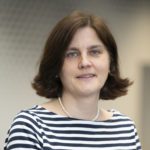Lien vers Pubmed [PMID] – 25556848
Lien DOI – 10.1016/j.neuropsychologia.2015.01.001S0028-3932(15)00002-0
Neuropsychologia 2015 Feb; 68(): 51-8
Prompt detection of unexpected changes in the sensory environment is critical for survival. In the auditory domain, the occurrence of a rare stimulus triggers a cascade of neurophysiological events spanning over multiple time-scales. Besides the role of the mismatch negativity (MMN), whose cortical generators are located in supratemporal areas, cumulative evidence suggests that violations of auditory regularities can be detected earlier and lower in the auditory hierarchy. Recent human scalp recordings have shown signatures of auditory mismatch responses at shorter latencies than those of the MMN. Moreover, animal single-unit recordings have demonstrated that rare stimulus changes cause a release from stimulus-specific adaptation in neurons of the primary auditory cortex, the medial geniculate body (MGB), and the inferior colliculus (IC). Although these data suggest that change detection is a pervasive property of the auditory system which may reside upstream cortical sites, direct evidence for the involvement of subcortical stages in the human auditory novelty system is lacking. Using event-related functional magnetic resonance imaging during a frequency oddball paradigm, we here report that auditory deviance detection occurs in the MGB and the IC of healthy human participants. By implementing a random condition controlling for neural refractoriness effects, we show that auditory change detection in these subcortical stations involves the encoding of statistical regularities from the acoustic input. These results provide the first direct evidence of the existence of multiple mismatch detectors nested at different levels along the human ascending auditory pathway.
